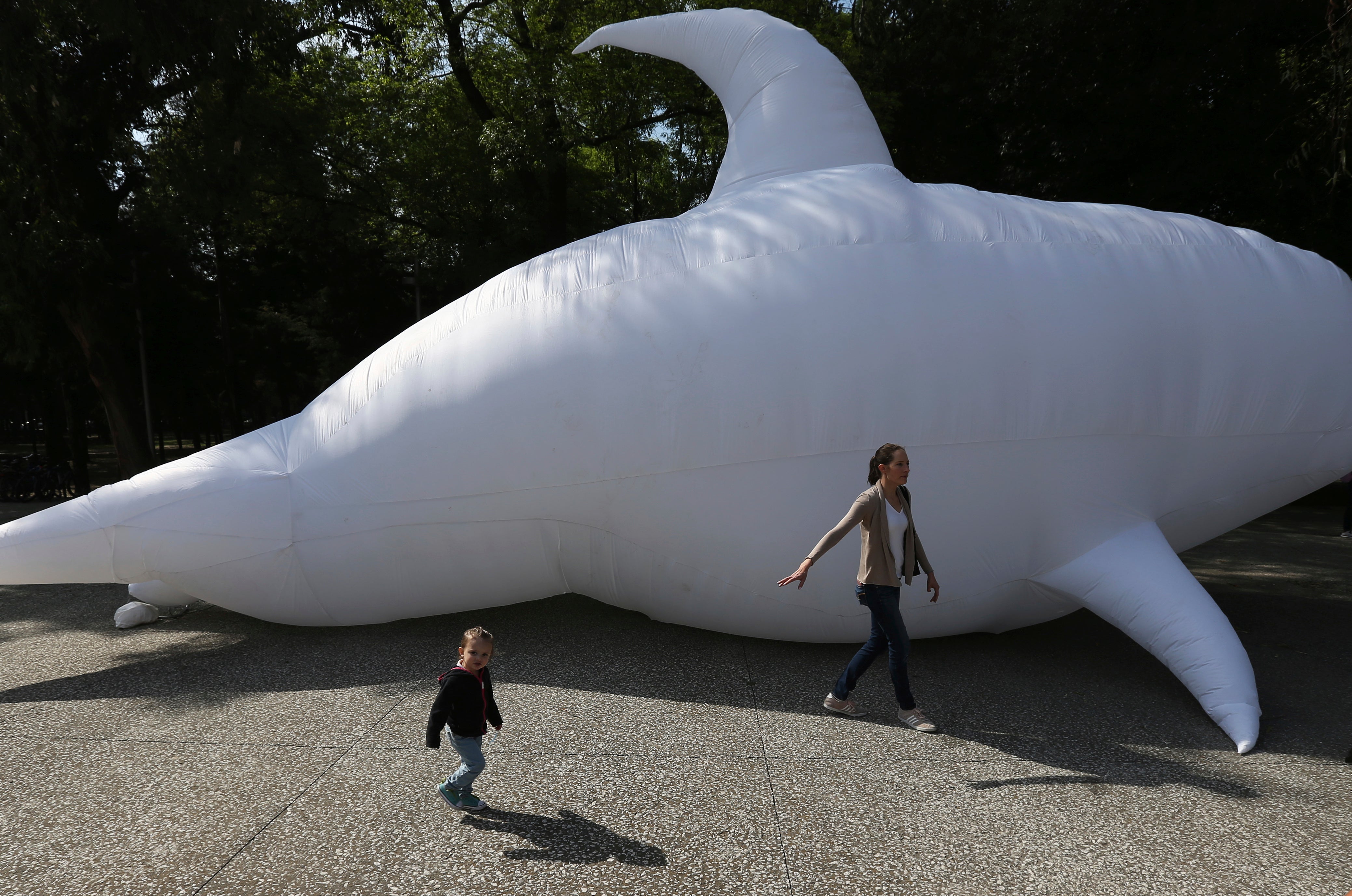Mexico allows limited return of activists to help porpoise
The Mexican government is allowing the environmentalist group Sea Shepherd to return to the Gulf of Mexico to help efforts to save the critically endangered vaquita marina porpoise, but won't let the group remove illegal gill nets

Your support helps us to tell the story
From reproductive rights to climate change to Big Tech, The Independent is on the ground when the story is developing. Whether it's investigating the financials of Elon Musk's pro-Trump PAC or producing our latest documentary, 'The A Word', which shines a light on the American women fighting for reproductive rights, we know how important it is to parse out the facts from the messaging.
At such a critical moment in US history, we need reporters on the ground. Your donation allows us to keep sending journalists to speak to both sides of the story.
The Independent is trusted by Americans across the entire political spectrum. And unlike many other quality news outlets, we choose not to lock Americans out of our reporting and analysis with paywalls. We believe quality journalism should be available to everyone, paid for by those who can afford it.
Your support makes all the difference.The environmentalist group Sea Shepherd said Thursday the Mexican government will allow it to return to the Gulf of Mexico to help efforts to save the critically endangered vaquita marina porpoise, but won’t allow the group to remove illegal gill nets.
It marks the latest Mexican government move that appears to give equal weight to sovereignty and fishing concerns, and the fate of the world’s most endangered sea marine mammal. Only about 10 of the elusive porpoises are believed to remain in the Gulf, the only place they live, and they cannot be held or bred in captivity.
For years, Mexico has relied on Sea Shepherd to remove most of the illegal nets that trap and drown vaquitas, while doing relatively little to combat violent attacks by poachers on the environmentalists' ships. The group estimates it has removed about 1,000 of the long, heavy nets over the last six years.
But the environmentalists were forced to leave the Gulf, also known as the Sea of Cortes, in January after a New Year’s Eve attack in which fishermen rammed a Sea Shepherd vessel with their boat; one of the fishermen later reportedly died of injuries sustained in that attack.
Since then, the job of locating and removing nets has been largely left to Mexico's navy, which has done little to stop fishermen setting nets to catch totoaba, a fish whose swim bladder is a delicacy in China and sells for thousands of dollars per pound (kilogram).
The new agreement leaves the net removal process to Mexico's notoriously unreliable and pro-fishing National Commission for Aquaculture and Fisheries.
Under the agreement, announced Thursday but signed in August, Sea Shepherd said it will advise the Navy about any nets it finds, adding "the nets will be recovered and delivered by Mexico’s National Commission for Aquaculture and Fisheries.”
Sea Shepherd President Pritam Singh praised the agreement, saying it "will allow for Sea Shepherd ships to return to the Upper Gulf, giving the vaquita a fighting chance of survival.” But the accord appears to reflect President Andrés Manuel López Obrador s dislike of foreign interference, and his desire to balance the interests of fishermen and endangered species.
“We don't need foreigners telling us what to do or placing sanction on our country's fishermen,” López Obrador said in June. He insisted that “we can reach an agreement that seeks an equilibrium between fishing and productive activities, and taking care of species.”
That attitude appeared to be behind the government's decision in July to abandon the policy of maintaining a fishing-free zone around the small area holding the last remaining vaquitas.
The measure announced replaces the fishing-free “zero tolerance” zone in the upper Gulf with a sliding scale of punishments if more than 60 fishing boats are seen in the area on multiple occasions.
Given that Mexico has been unable to enforce the current restrictions — which bans boats in the small area — the sliding-scale punishments also seem doomed to irrelevance. For example, the Agriculture and Fisheries Department says it will use 60% of its enforcement personnel if 20 fishing boats or less are seen in the restricted area.
The agreement announced Thursday appears to be an attempt to avoid attacks on the conservationists' ships, which have been targeted even with Mexican Navy personnel aboard.
The confiscated nets are expensive, so fishermen often harass the conservationists’ boats to try to get them back. The fishermen claim they have not received compensation from the Mexican government for lost fishing income. Groups representing fishermen were not immediately available to comment.
Mexico’s Environment Department has previously said the drop in the number of vaquitas and the area where they have been seen in recent years justified reducing the protection zone, which in theory once covered most of the upper Gulf.
Formally known as the vaquita “reserve,” that zone starts around the Colorado river delta and extends south past the fishing town of San Felipe and near Puerto Peñasco.
But as vaquita numbers dwindled to a few dozen, and then to less than a dozen, scientists and environmentalists decided to make a last-ditch stand in the ‘zero tolerance’ zone, a far smaller area where the last vaquita were seen.
Their numbers are confirmed by subaquatic listening devices that graph the squeaks and squeals the animals make, even as visual sighting become rare.